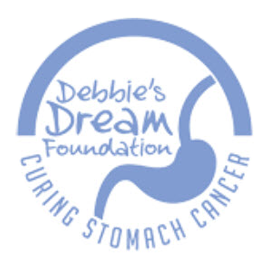Articles
August 30, 2018- Mutations in MUC16 Gene May Help Define Immunotherapy Strategies for Gastric Cancer, Study Suggests
Understanding the mutation in the MUC16 gene may be vital to help predict the outcome of the disease as well as possible treatments available for gastric cancer patients. The MUC16 mutation is thought to increase cancer cell’s susceptibility to immunotherapies. Although the genetics of gastric cancer varies greatly from person to person, mutations in the…
Read MoreAugust 21, 2018- Cut your risk of gastric disease by eating THIS food
Researchers at Spain’s Universitat Politecnica de Valenicia studied the effects of lycopene in the body. Lycopene is an antioxidant found in several fruits and tomatoes, hence it is also found in ketchup. Researchers found that lycopene is more potent in the sauce rather than the fruits because it has been cooked down thus facilitation absorption…
Read MoreAugust 20, 2018- RAINBOW Study: Antiangiogenic Therapy in Gastric Cancer
The RAINBOW study pre-treated patients with the doublet of fluoropyrimidine plus a platinum, and later gave paclitaxel plus or minus ramucirumab. Survival rates for this study increased to more than 2 months. Another second line study, REGARD lead by Charlie Fuchs, consisted of best supportive care plus a placebo or best supportive care plus ramucirumab.…
Read MoreAugust 10, 2018 – Analyzing Potential Therapies in Gastric/GEJ Cancer
Current research of esophagogastric cancer is heading toward building on the signals of activity seen for immunotherapy. Though phase I and phase II trials have given a mixed results, scientists are looking forward to the results of first line immunotherapy trials some of which involve the claudin protein in the body. This protein is overexpressed…
Read MoreAugust 09, 2018- Gastric Cancer Mutation Type Linked to Higher Mutational Load, But Better Prognosis
In a recent study, researchers found that MUC16 gene mutations in gastric cancer patients lead to higher mutational loads than patients who do not have these mutations. Furthermore, the researchers also found that MUC16 gene mutations affect the immune system and could in also be used to identify patients who could respond to immunotherapies. Of…
Read MoreJuly 29, 2018- Foods That Stop Cancer: Here’s a List of 10 Anti-Cancer Vegetables You Should Never Forget to Eat
Although green vegetables are great at preventing cancer, a new study published in the International Journal of Cancer states that in addition to cruciferous vegetables, orange vegetables also contribute to lowering risk of cancer. The reason behind this is not well understood yet, however, they are thought to have high micronutrients, antioxidants and fiber which…
Read MoreJuly 27, 2018 – Optimal Perioperative Chemotherapy in Gastric/GEJ Cancer
Traditionally, preoperative chemotherapy without radiation is used following the standard Britsh regimen which combines epirubicin platinum and 5-FU (both drugs used for chemotherapy). However, recently the Germans developed the FLOT regimen which essentially is a modified FOLFOX with an addition of docetaxel. Following this development, they decided to compare their new regimen FLOT versus the old regimen ECF…
Read MoreJanuary 19, 2018 – Single Blood Test Screens for Eight Cancer Types
John Hopkins Kimmel Cancer Center researchers developed a single blood test that can detect for eight common cancer types through assessment of the circulating proteins and mutations in cell-free DNA. The test, called CancerSEEK, is a unique noninvasive, multianalyte test that simultaneously evaluates levels of eight cancer proteins and the presence of cancer gene mutations…
Read MoreJanuary 19, 2018 – HIPEC Increased Survival in Gastric Cancer with Peritoneal Metastasis
The goal of this study was to test the effect of HIPEC (Hyperthermic Intraperitoneal Chemotherapy) on survival and postoperative outcomes after complete cytroreductive surgery compared with resection alone. At 3 years, HIPEC significantly improved overall survival with almost 26% of patients alive at 3 years compared with 13% of patients in the surgery alone group.…
Read MoreMay 1, 2018- An Amino acid mixture as a new approach to reducing cancer therapy-induced gastrointestinal toxicity? A Pragmatic Study
Gastrointestinal toxicity is common during cancer therapy, and most treatment options are not helpful for the majority of patients. A recent study using a mixture of amino acids show decreases in mucositis and gastrointestinal toxicity following irradiation. This study was conducted in order to evaluate how the amino acid-based beverage benefited cancer patients receiving chemotherapy…
Read More